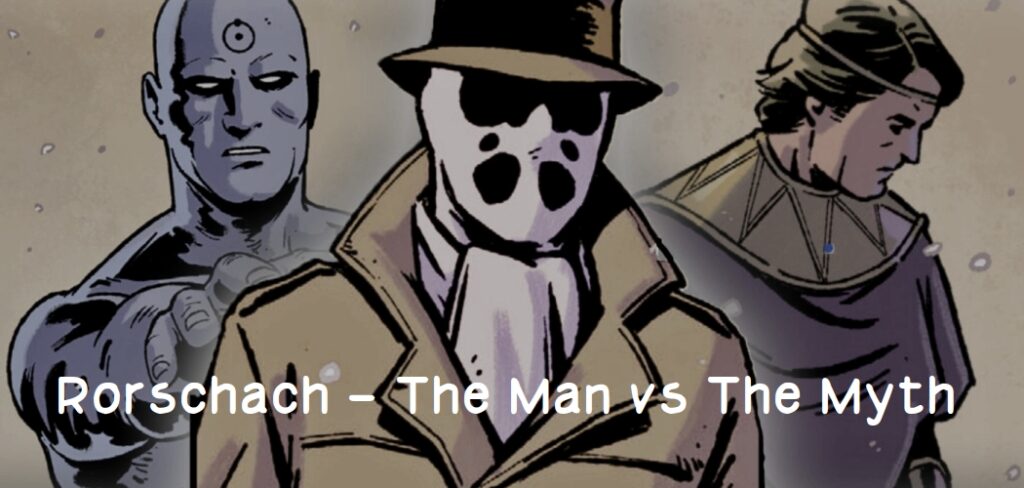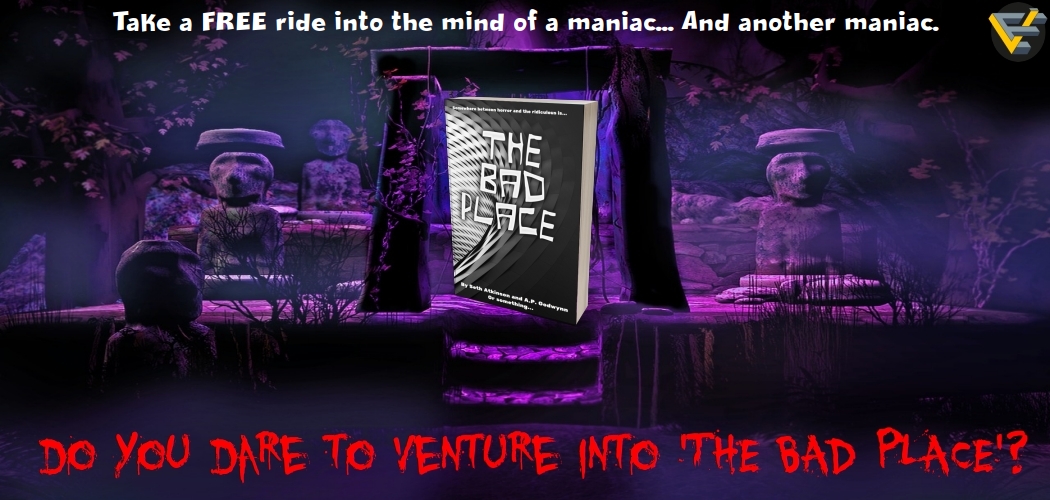Rorschach: The Myth vs The Man
By Seth 'The Silk Gopher' Godwynn
Nobody reads the graphic novel ‘Watchmen’ and thinks to themselves, ‘I didn’t think much of that Rorschach chap.’ Even those who have only seen the movie would generally agree. Those that have done both, in either order, are probably wondering why he confuses his face with his mask in one but not the other, and probably why in the movie he refers to the costumed vigilantes as ‘Watchmen’ given its context in the graphic novel. But that’s one for another day. I think we all agree that Rorschach is the single most interesting character in the story, but few ever look under the bonnet and rummage around with the piping to figure out how he’s wired. So let’s do that then!
The character, when taken at face value is practically a one dimensional caricature. He subscribes to a strict moral code, a set of absolute black and white principles that he rigidly adheres to, and forces to do likewise. Those that don’t are criminals and criminals are scum, scum deserve death, and the ends justify the means.
However, I chose my wording carefully when I said that he ‘subscribes’ to this code. At his core, they are not his values, not personally. We see that through a combination of his own limitations as the victim of a less than stellar upbringing, and the state of the world as he sees it (the latter most likely partially confirmation bias resulting from the first, but the ‘pretty butterfly’ incident was the inciting factor), he found himself no longer able to trust his own judgement in matters of right and wrong. He could no longer interpret moral nuances, the various tones of brown in a process colour spectrum of virtue. As such, a strict system of simple rules that clearly differentiate righteousness from evil in absolute razor-sharp terms would have been appealing to a man of conviction, and that is why he adopts the system with such vigour.
But a nuanced humanity behind the rigid mask makes its presence known frequently throughout the story.
His awkward-for-everyone apology after he’s rescued by Owl Man is low hanging fruit, but let’s not kid ourselves. We all knew it was coming; we all knew it would happen, because we had seen his humanity rise to the surface many times before that, even if we didn’t consciously register it.
For example, when he confronts Morlock the Magician about a stash of technically illegal narcotics and finds out he has terminal cancer, he does the wrong thing according to his own rules. The right thing to do would be to kill him, or at the very least, give him a good beating and leave him for the police. Instead, he understands he’s not a threat to anyone and has a lot on his plate, so he shows mercy. This was one of those details that wasn’t vital to the plot, but it remains glued to the back of your mind, and reminds you every now and then that he isn’t actually a complete monster.
One that was perhaps harder to spot was his professional courtesy that drove the earlier chapters. The Comedian has been killed, he has a hunch that ‘masks’ are being targeted, and he goes out of his way to warn the others. The Comedian was by all interpretations a pretty terrible person, and certainly no better than the sorts of people that Rorschach would routinely drop down elevator shafts, so why did he care that he’d been killed? Moreso, why did he care as much as he did? He certainly questioned the effectiveness and even the moral values of the other ‘masks,’ and yet he went out of his way to warn them of a possible danger.
The strict moral code provides its own explanation: their methods may vary, but they were fighting the same battle, so he had to allow them the flexibility to reach their shared desired ends their own way—the end justifies the means, after all.
However, there is a much simpler explanation.
They were his friends.
These were people that actually mattered to him at a personal level; he cared what happened to them, and didn’t want them to be pointlessly murdered. He stuck his neck right out there in the open to protect them based on a mere hunch, because if they died too, he would really be alone in the world, and the numb Rorschach persona would be all that remained.
The inciting incident itself that solidified the persona was an act of absolute human decency. A presumably scared little girl had been kidnapped, murdered, and fed to dogs. He was so mortified by this discovery that he had the perpetrator torture himself as he slowly burned to death. That’s not something a psycho would do—he was emotionally invested in finding the girl alive, and his extreme reaction to it was perfectly sane from that perspective.
So we see that it’s hinted all the way through that there is a person underneath all that psychological make-up, and if Chekhov’s Gun has taught us anything, it’s that the gun is going to be fired. That humanity is going to need to reassert itself before the story concludes. The story, having been written by somebody that knows what they’re doing, more than delivers in this regard: in his final scenes, this is precisely what happens, and it’s presented to us almost entirely through subtext. In fact, so nuanced was it that one could easily believe that the Rorschach persona had won; strict morality had finally beaten down common sense and human judgement once and for all. In reality, what happened was the polar opposite of that.
To illustrate, let’s recap with spoilers. He’s discovered that Ozymandias has just killed an awful lot of people in a bizarre way as a plot to unite the rest of the world and de-escalate a nuclear standoff, avoiding a destructive war. It works too. However, Rorschach and several of his friends are fully aware of what’s happened and are pretty miffed about the whole thing. Ozymandius explains that they can’t tell anybody, or the people would have died for nothing, which everybody concedes on—except for Rorschach. His position is, as per his code, that this was a crime, Ozymandias must be punished, and the people must know the truth. Doctor Manhattan can’t allow this to happen, which Rorschach appreciates, and so with that understanding between them he kills Rorschach to stop him. It was the only way.
What was really going on in subtext is a lot more fun to explore. The whole incident utterly overwhelmed Rorschach’s rigid code, and gave his humanity the perfect opportunity to reassert itself, in increasing doses as the scene unfolded.
Under normal circumstances, his ‘sensible’ friends would often be critical of his crime-fighting antics, because to them, the end doesn’t justify the means. He understands this and accepts that it is what it is.
But there was a strange reversal this time. In his mind, the means—of killing tens of thousands of people—could not be justified by the end result—global de-escalation—but his friends had no problem accepting it.
His code rushed to the rescue: Ozymandias killed innocent people—not acceptable. Crime must be punished. But he knew, as well as everybody else did, that making their deaths meaningless by adhering to his code and revealing the truth would also be unacceptable. Having Doctor Manhattan kill him was his only way forward. The internal conversation probably went something like this:
Rorschach: “The truth must be known.”
Kovacs: “But their deaths will be for nothing and it will start a war. Besides, Doctor Manhattan will probably find a way to stop me.”
Rorschach: “Yes, he will kill me. This is the way.”
Kovacs: “It does seem something of a win-win.”
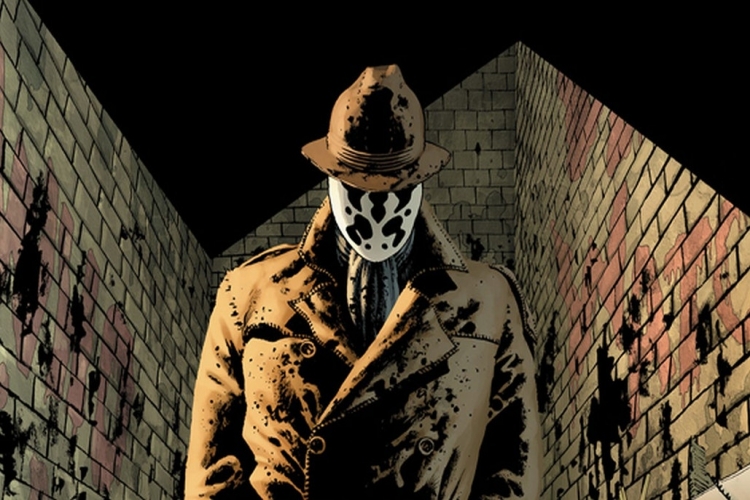

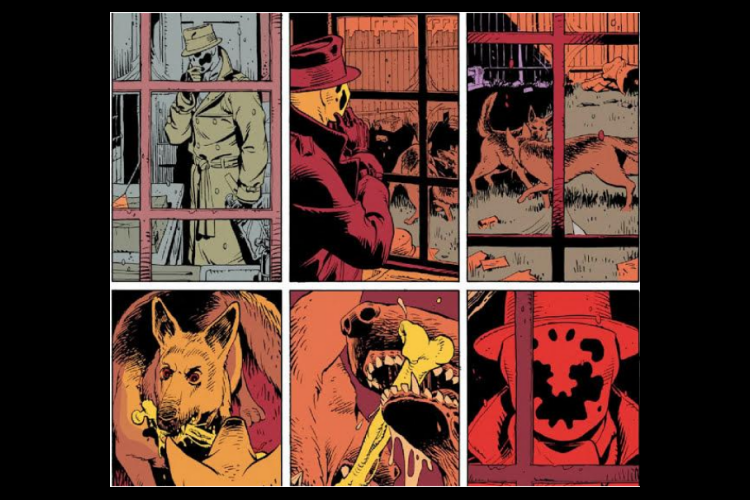
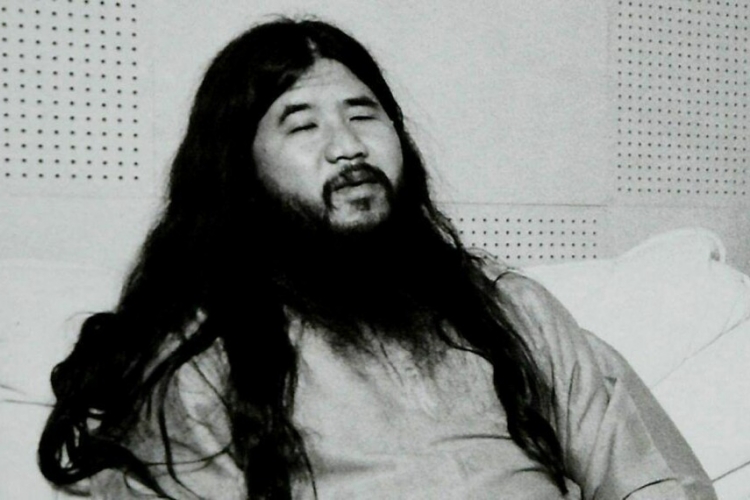
His Rorschach persona accepted that such a death was inevitable, but his humanity embraced it. As you will note, he didn’t merely anticipate it, he literally insisted on it. He stopped in his tracks, stood there, and screamed at Doctor Manhattan to do him in!
To make the point even clearer, in his final moments, he took off his ‘face.’ This is a big deal for the character, because the face behind the mask had always been his disguise.
Choosing to die with his true face revealed meant that ‘Rorschach’ was dead. His humanity had finally prevailed.
Many thanks for reading this article. We hope it was interesting, informative and entertaining. Follow us on social media or share our content on your own pages. It helps us grow so we can create more free content to help you.
